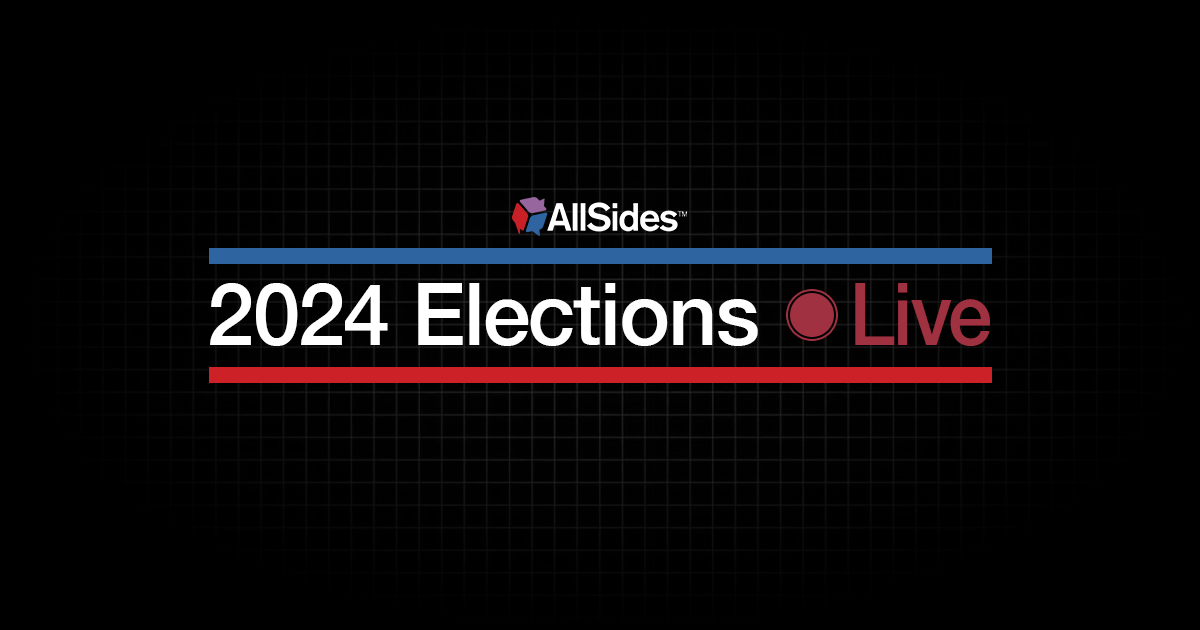
Should school boards and states implement voucher programs for education?
Explore all perspectives, stances, and arguments for and against voucher programs with AllStances by AllSides.
States Should Implement Education Vouchers
School vouchers increase equality, impove the student experience, and decrease costs.
States Shouldn’t Implement Education Vouchers
School vouchers increase inequality, worsen the student experience, blur the line between church and state, and undermine public school resources.
Background
In America, public schools are funded by local property taxes from nearby residents. These residents generally are assigned to the closest school to their home address, although some school districts give parents the option to apply for a spot at publicly funded charter schools, magnet schools, or other open enrollment opportunities.
One of the most popular alternatives to public schools is private schools, which claim to provide better education or an educational experience or environment that better fits the family’s needs or preferences (religious, arts, cultural, ethnic, Montessori, special education, etc). However, tuition costs make them inaccessible to many families. Voucher programs seek to bridge this accessibility gap by partially funding public schools with grants provided to parents that can alternatively be spent on private school tuition.
The modern idea of vouchers originates from free-market economist Milton Friedman. Voucher programs have also been supported by religious groups, since the 1962 Supreme Court case Engel v. Vitale limited the amount of religious instruction permitted in public schools. However, the Supreme Court later protected parents’ rights to use school vouchers for private religious schools in Carson v. Makin.
Did we miss a stance or perspective? Email us.
Stance 1: Yes, States Should Implement Education Vouchers
School Vouchers Increase Equality
- Vouchers would supplant current funding systems, which give fewer resources to urban districts compared with suburban districts. The current system also provides fewer resources to low-income and minority schools compared to more affluent schools in the same district.
- Vouchers make private schools with better protections for LGBTQ students accessible to more vulnerable students.
- A voucher program would decrease racial segregation in schools by allowing parents to send their children to schools outside of monolithic school districts.
- Vouchers, through increasing educational choices, “should enable greater specialization, with some schools focused on artistic children, some on children with disabilities, some on kids who thrive in unstructured environments, and so on.”
School Vouchers Improves the Student Experience
- Vouchers enable people to escape underperforming public schools.
- Voucher programs would encourage the growth of charter schools. These schools have better mental health outcomes for students like significant decreases in adolescent suicide rates.
- Studies have shown that students with school vouchers graduate at significantly higher rates than others.
- School choice policies like vouchers allows educators to build a dynamic landscape of learning options outside the public school paradigm.
- Vouchers would encourage public schools to address subpar teachers.
School Vouchers Decreases Cost
- “If families more fully utilized private options [through tax credits], the county could save tens of millions of dollars in classrooms that would not have to be constructed.”
- “Private school choice programs have the potential to significantly diminish income differences and housing price differences across public school districts.”
Parents and Students Approve of School Voucher Programs
- In Florida, submissions for vouchers increased from 250,000 to 350,000 from 2020 to 2021.
- “The introduction of genuine competition will make schools and school boards accountable to parents.”
Stance 2: No, States Shouldn’t Implement Education Vouchers
School Vouchers Create Inequality
- “Vouchers benefit the wealthy at the expense of low-income and rural communities.”
- Vouchers support private schools that are often inaccessible to those with mental or physical disabilities.
- The vast majority of families that will take advantage initially of the voucher expansion were already able to afford to send their kids to private schools
- “Vouchers could create ‘segregated education’ between disabled and non-disabled students.”
- “14 percent of religious schools take an active stance against LGBTQ staff and students.”
- School vouchers lead to segregation of religion, ethnicity, or socioeconomic status in our education system.
- The application process for many schools eligible for vouchers could perpetuate academic and economic disparities.
School Vouchers Worsen the School Experience
- Vouchers divert taxpayer money from public schools, which lowers the quality of education in the public system.
- Data and statistics reveal mixed and limited results on the effectiveness of vouchers on student academic performance.
- School vouchers can be used to pay tuition for schools that do not prepare their students for the future.
School Vouchers Blur Lines between Church and State
- Taxpayers should not have to pay for vouchers that support religious education.
- For religious schools, there may be strings attached to vouchers, meaning the government would likely try to assert some form of control over the curriculum.
Public Schools Provide Public Resources that Vouchers Would Undermine
Glossary of Terms
School Choice - Policies that seek to provide students alternatives to public schools through taxpayer funding, including vouchers, open enrollment, charter and magnet schools, or a mix of these policies
Vouchers - A voucher is a government paid rebate given to parents who send their kids to private school instead of public school
Universal Vouchers - a voucher that anyone can receive, meaning no eligibility requirements need to be met
Private School - A school that offers full time instruction that is privately funded
Parochial School - A private school that is directly affiliated with a religion or church
Public School - A school that offers full time instruction that is funded and managed by the government
Open Enrollment - A type of school choice policy that enables students to attend public schools that are outside their attendance area
Equity in Education - The concept that all kids, regardless of income, race, or any other metric, are entitled to a quality education and recognize, respect, and attend to the diverse strengths and challenges of the students they serve.
Charter School - A charter school is a school managed independently from the district it is in that receives federal and state funds. Charter schools often also raise funds from private sources.
Magnet School - A magnet school is a public school with a unique specialized focus in a specific area of study or for a specific type of learner, such as gifted children.
Mandatory Reporting - Policies that require faculty and counselors at public schools and some private schools to report cases of domestic or sexual abuse
Portfolio Review - Policies that require students in private or homeschool to show what they have worked on and what resources they have used in school
No Child Left Behind Act - A 2002 bipartisan law that increased federal oversight over public schools through standardized testing, eventually replaced by the Every Student Succeeds Act in 2015.
Every Student Succeeds Act - A 2015 public education law that gives more power to the states to assist disadvantaged students, reduce reliance on standardized testing, and emphasizes academic achievement and a well rounded education
Milton Friedman - A Prominent economist who pioneered school voucher programs in his 1980 book, Free to Choose
Engel v. Vitale - A Supreme Court case that found public schools facilitating the recitation of a specific prayer violated the 1st amendment of the Constitution.
Carson v. Makin - A Supreme Court case that found that prohibitions of school voucher use for sectarian schools violated the 1st Amendment of the Constitution.
Did we miss a stance or perspective? Email us. Your input improves our balance.
Provide Feedback on this AllStances
Developed by:
AllSides Editor-in-chief Henry A. Brechter (Center bias)
University of California-Riverside public policy students Divya Bharadwaj, Andrew Shannon, and Samuel Shroff (all Left bias)
Reviewed by:
Content Designer Joseph Ratliff (Lean Left bias)
Director of Marketing and Bias Ratings Julie Mastrine (Lean Right bias)


